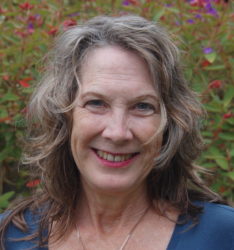Main Session: Marie Grace Brook, PhD, LCSW, ACMHP, ACSGC
Recovering Balance After the Big Leap: Overcoming Challenges in Integrating Spiritually Transformative Experiences (STEs)
Abstract
In the aftermath of spiritually transformative experiences (STEs), experiencers (STErs) have sometimes reported prolonged integration processes that were challenging. STE was defined as a discrete experience of an altered state of consciousness that brings about a profound transformation in the spiritual identity and life expression of the experiencer. These include experiences such as near-death experiences (NDEs), kundalini awakenings, religious conversions, and mystical experiences. Clinicians have suggested strategies helpful to STErs in the integration process, but to date those suggestions have not been examined empirically. The purpose of this study was to assess the extent to which STErs themselves endorsed those suggestions. The Integration of Spiritually Transformative Experiences Inventory (ISTEI) was created by the researcher based on seasoned clinicians’ suggestions of 84 practices, habits, and behaviors that can be helpful. Participants were recruited through online STE networks and social media. Out of 431 respondents who began the ISTEI, 245 met criteria for integration as assessed by the 5-Item Mental Health Inventory, and transformation as assessed by the Posttraumatic Growth Inventory-Short Form. Participants rated 80 of the 84 practices, habits, and behaviors as helpful. Twelve practices were rated by all participants as essential (4.0 in a Likert scale of 1-4) including (a) practicing compassion, humility, forgiveness, honesty, and gratitude; (b) practicing self-awareness and exploring the unconscious; and (c) supportive practices such as finding serene environments to allow expansion of awareness to unfold, reading spiritual literature, praying, and sharing with another person. A key finding was that across a variety of STEs, there was consistency regarding the integration practices rated as helpful, and that psychiatric care and medication were usually not found to be helpful, and even contraindicated for persons integrating STEs (p < .001). Correlation tests between helpfulness and frequency of use showed that STErs gravitated intuitively to what was the most useful for them (p < .0001). Both STErs themselves and the healthcare providers who serve them can use these findings to facilitate STErs’ post-STE integration processes.
Presenter Bio

Marie Grace Brook, PhD, LCSW, ACMHP, ACSGC holds a BA from Duke University, MSW from Denver University, Masters Certificate in Spiritual Direction from Fordham University, and PhD from Institute of Transpersonal Psychology. She has worked as a mountain guide, healing artist (Rolfer and craniosacral therapist), hospice social worker, graduate school adjunct teacher, spiritual director/supervisor and researcher. Her papers have been published in NASW’s Children & Schools, SDI’s Presence, ITA’s International Journal of Transpersonal Studies, and ProQuest Dissertations. In 2015 and 2016, she presented research studies at the American Psychological Association Div. 36 Mid-Year Conference and ACISTE in the USA, at the International Congress for Complementary and Integrative Medicine Research in South Korea, at the European Transpersonal Association Conference in Italy, at the International Transpersonal Conference for Education and Humanities in Indonesia, and at the International Transpersonal Psychology Conference in Brazil. Her recently published research inquires into recommended methods of integrating spiritually transformative experiences from a survey of people who have integrated such experiences. Marie lives in Santa Cruz, has a private practice in spiritual direction and psychotherapy specializing in supporting people integrating spiritually transformative experiences, and hosts Jasmine Garden Oasis Retreat House with her husband, Peter.